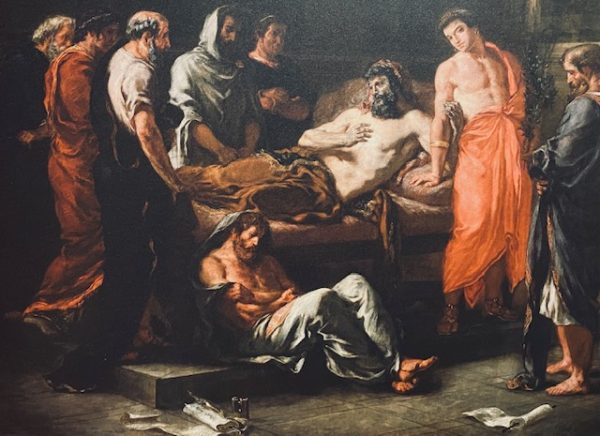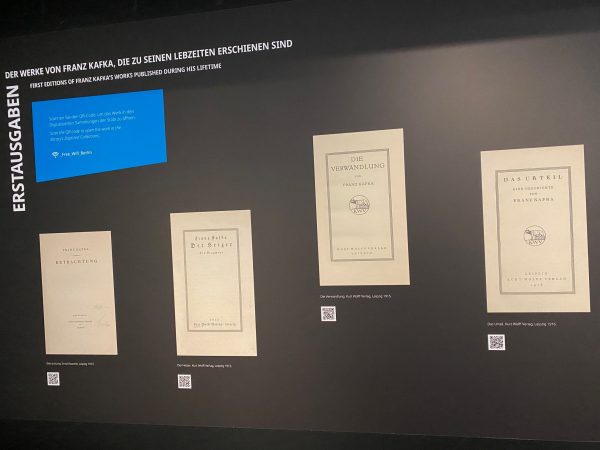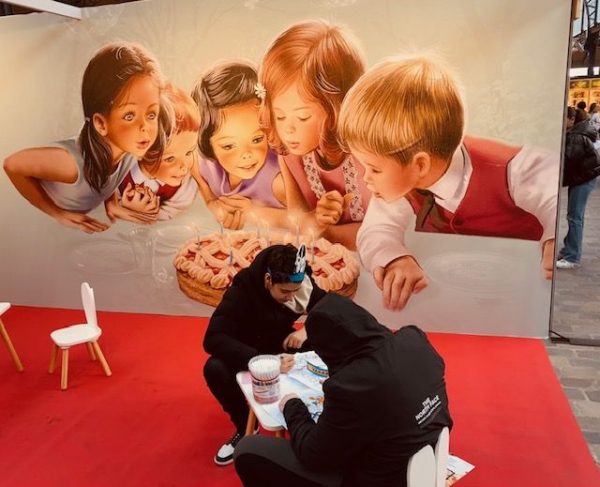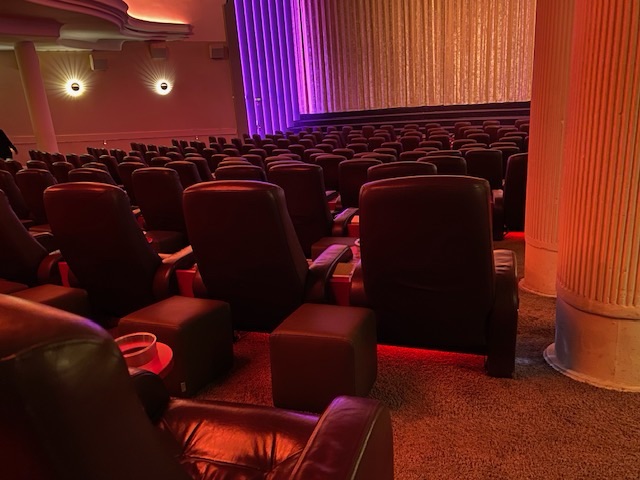In order to produce art it is not always necessary to have expensive materials at your disposal. Henri Matisse has demonstrated that paper and scissors can go a long way. With this in mind, the work by Johanna Beckmann, shown in the upper hall of the “Kulturforum” in Berlin, is quite astonishing. Beckmann relied on just paper and scissors, in addition to her paper and pencil work, to illustrate her own texts as well as collections of fairy tales. Her paper cuts of some hobbit stories might be remembered by a whole generation of children and even some of today’s world. Paper cuts and theatre based on such figures have been a cross-cultural treasure. The illustration of stories, but also the creation of own characters might be derived from such cuts using just paper and scissors. The “Kunstbibliothek” and the “Lette-Verein”-academy in Berlin joined forces for this exhibition and they both continue to transmit this creative craft to students actively involved in this “intergenerational exhibition”. Please bring your (grand 😉 children.
All those who travelled to Paris recently will be well aware that at “Montmartre” you can still have your profile cut these days. At this exhibition there is a “do-it-yourself” section, not only reserved to children.




















